TEDx: The Future of Virtual Nature
Reflecting on the privileged origins of TED Conferences and the compellingly presented, feel-good pop-science of the TED Talk, this project uses the familiar format to comment on the fluidity of authority in the post-truth age.
In co-opting the presence and confidence of a TED speaker, this project seeks to call attention to contemporary constructions of trust, truth, and authority and to the power we give to the performance of credibility in the advent of fake news and expanded access to self-publishing platforms like Facebook, Twitter, YouTube, and the like.
Press Release︎︎︎
Reflecting on the privileged origins of TED Conferences and the compellingly presented, feel-good pop-science of the TED Talk, this project uses the familiar format to comment on the fluidity of authority in the post-truth age.
In co-opting the presence and confidence of a TED speaker, this project seeks to call attention to contemporary constructions of trust, truth, and authority and to the power we give to the performance of credibility in the advent of fake news and expanded access to self-publishing platforms like Facebook, Twitter, YouTube, and the like.
Press Release︎︎︎
Video Stills
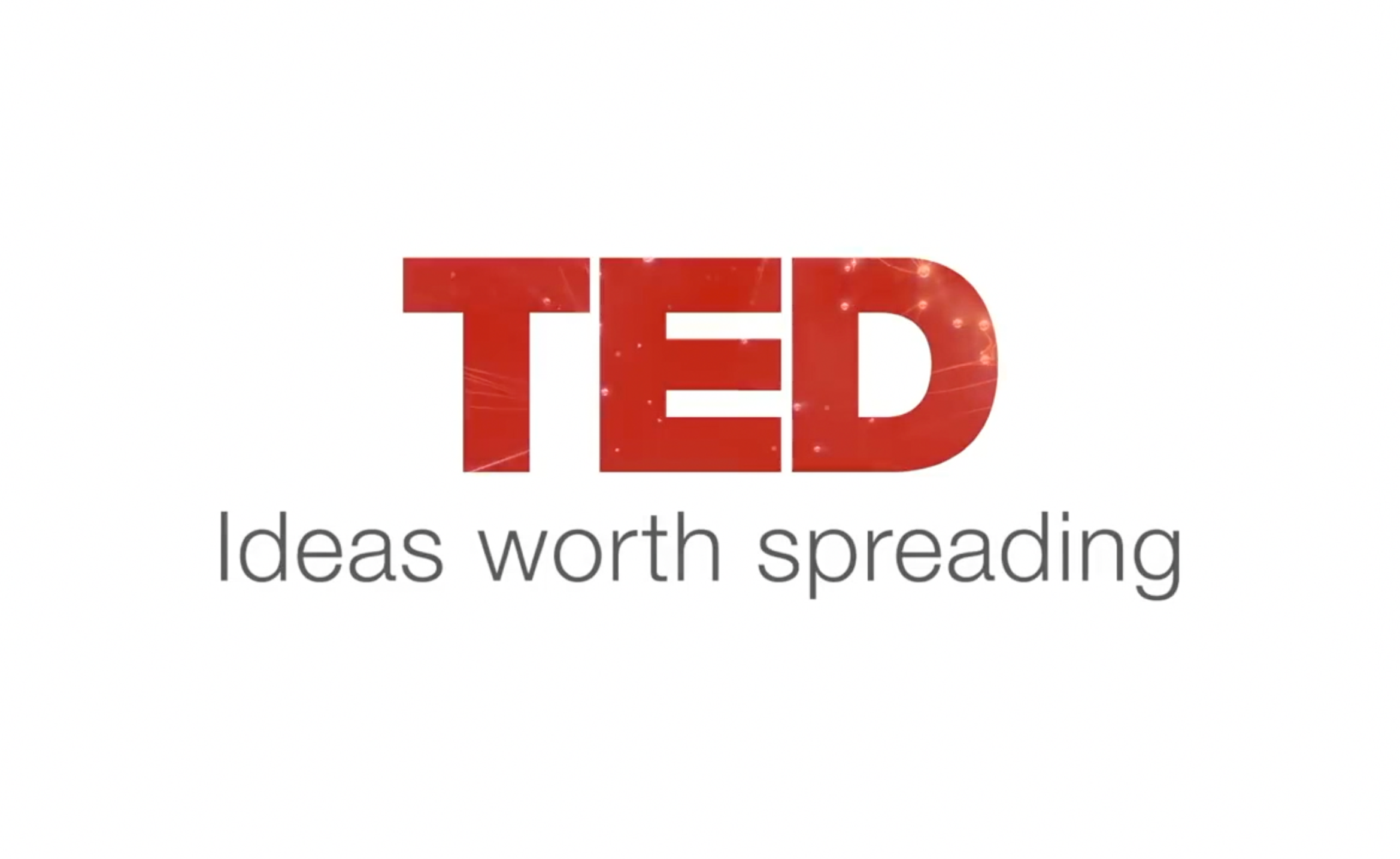



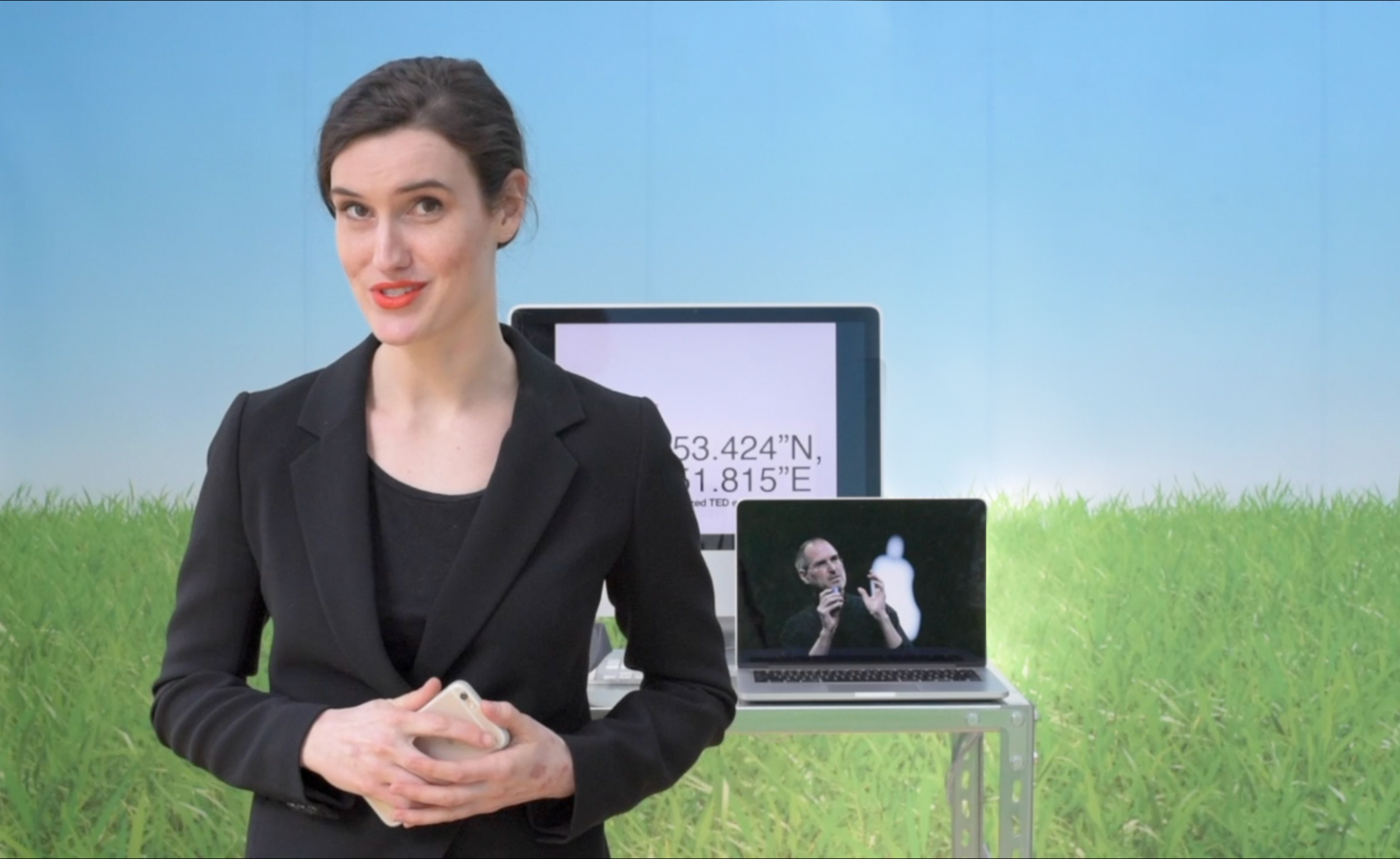
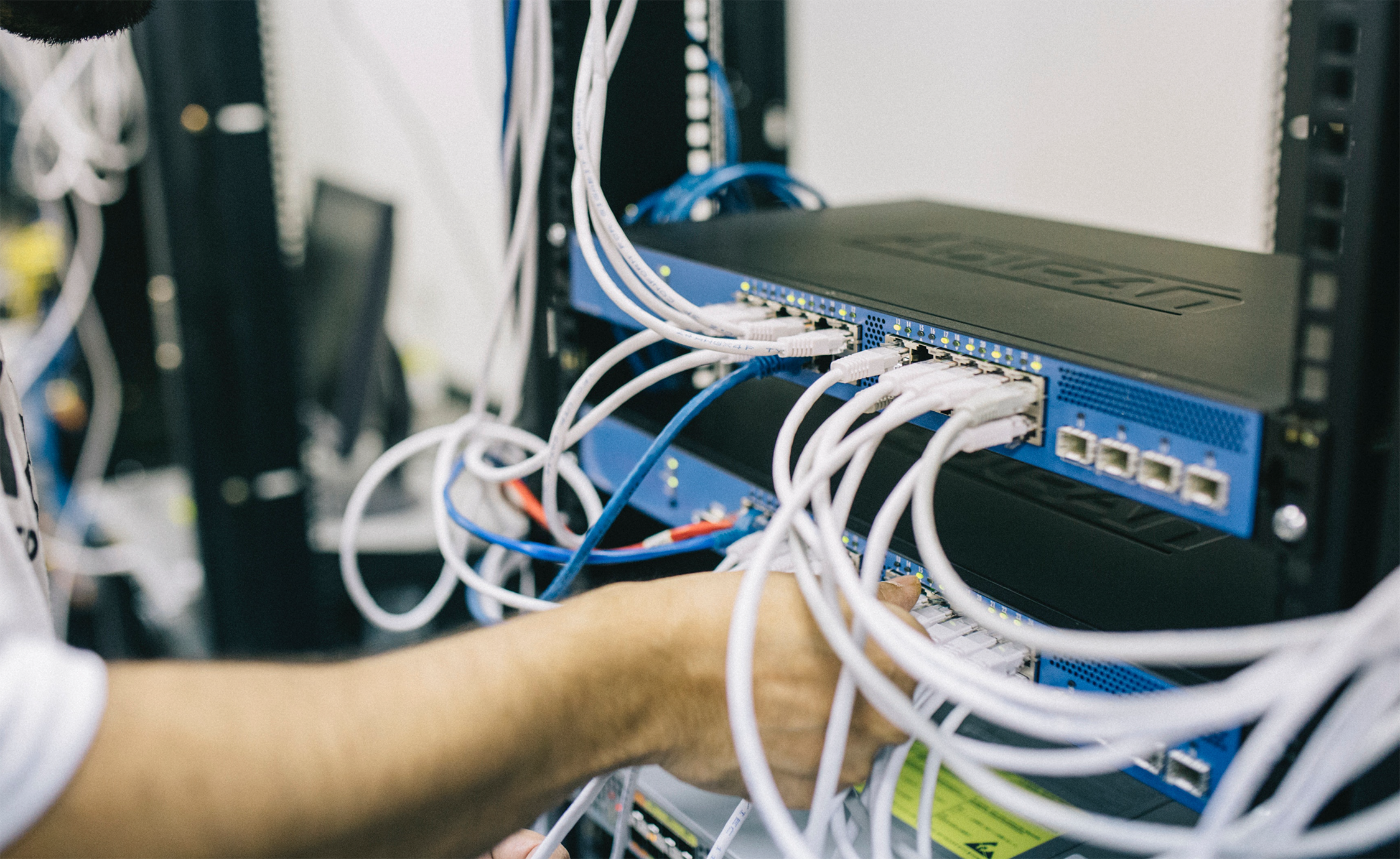

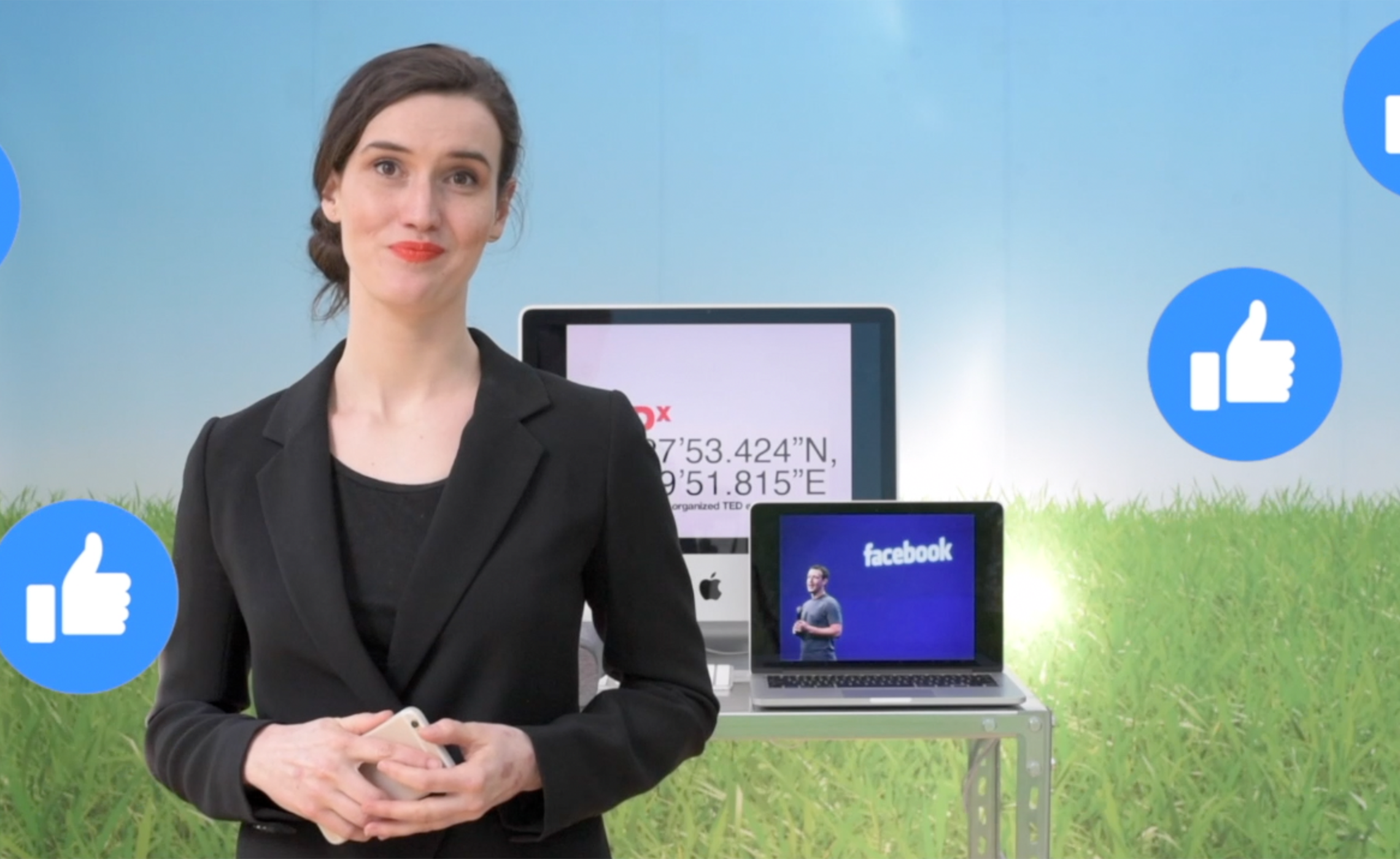

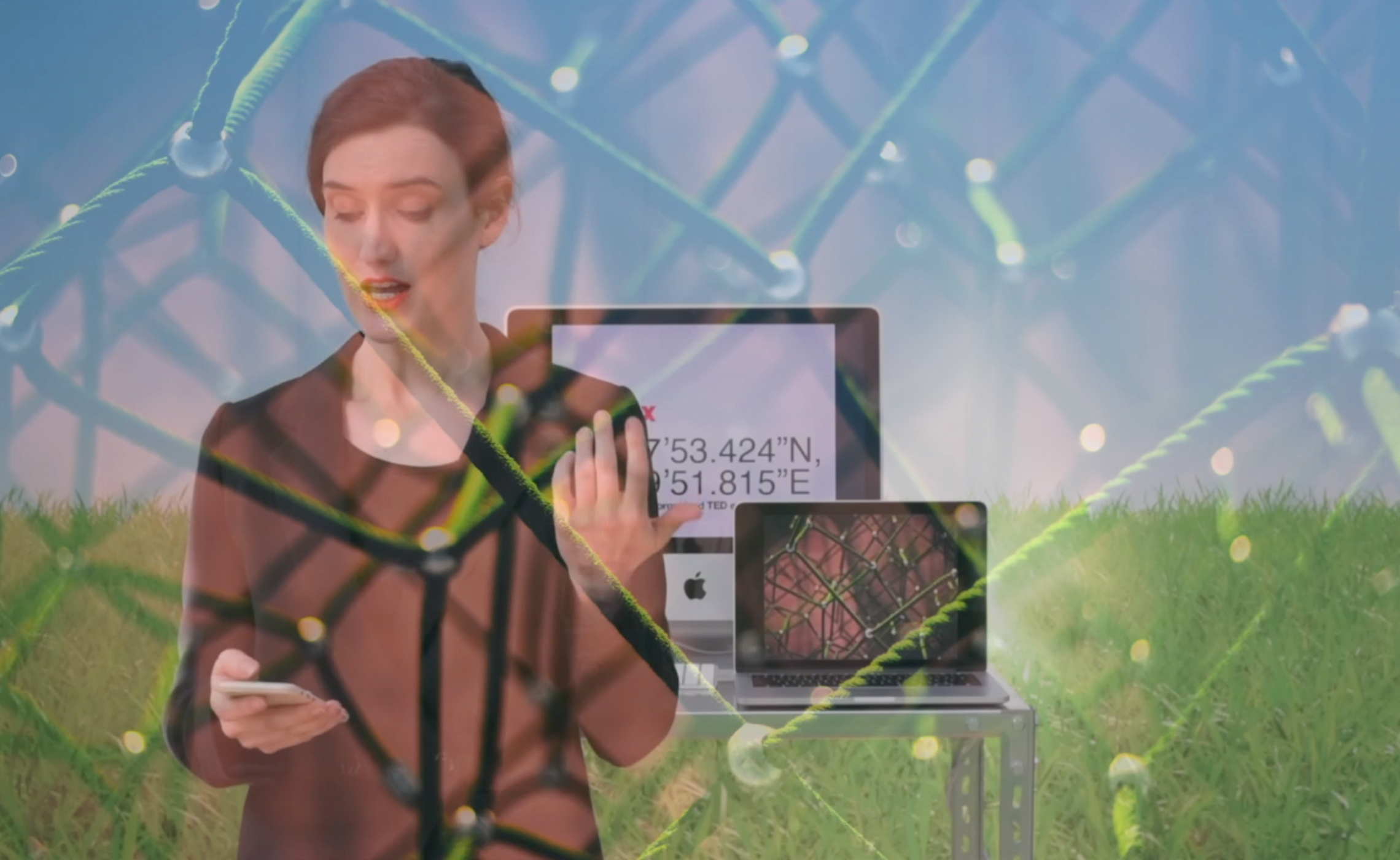
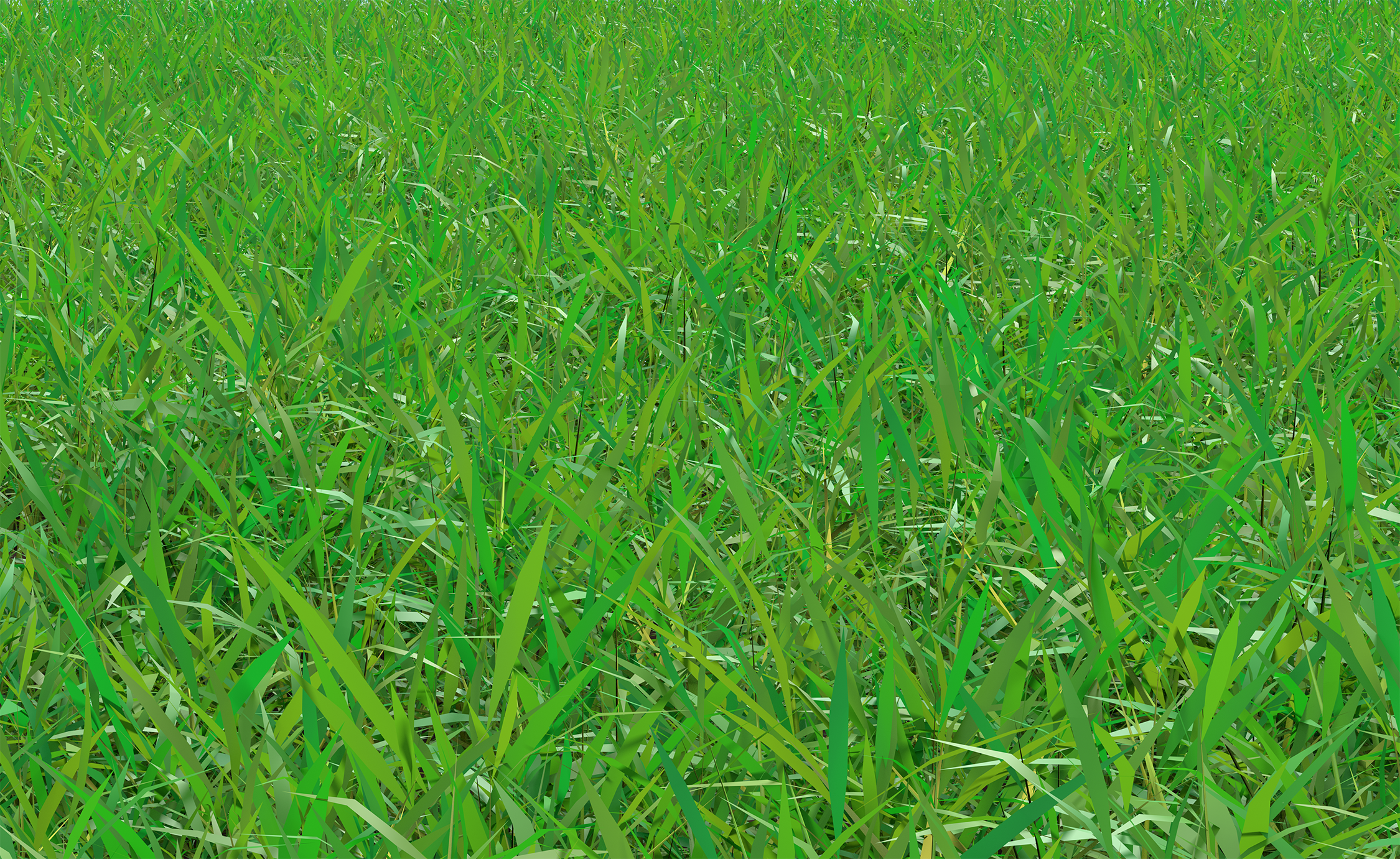
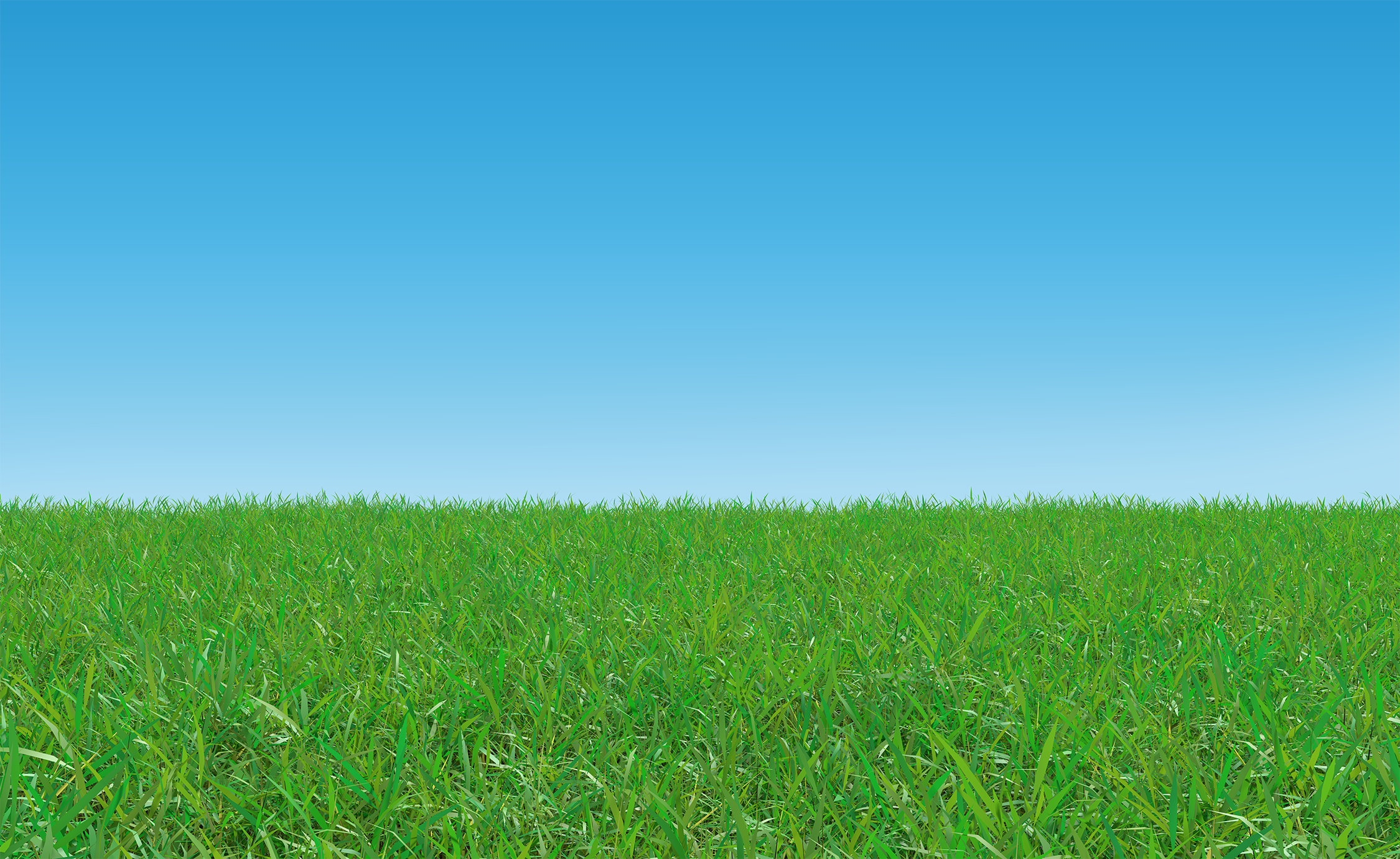
Description
Working in conjunction with TEDxGeo, an anonymous, online-based network of future-looking artists, creatives, and innovators at the intersection of art, culture, and technology, speaker Erin Mitchell discusses the future biological and environmental possibilities of virtual nature and shares the research behind her development of fully immersive, natural virtual environments.
Reflecting on the privileged origins of the TED organization and the compellingly presented, feel-good pop-science that has become a hallmark of the widely-recognized TED Talk, conceptual artist and highly amateur performer Erin Mitchell turns the tables on TED by hosting her own satirical talk on the commodified natural virtual environments she examines in her work. Co-opting the presumed authority of a TED speaker, she uses confident assertions and persuasive language to inspire viewers to leave behind the limitations of the natural environments around them for a more enticing future product experience that will be “as easy as updating your current operating system and as affordable as the latest iPhone X.” Portraying an alternative version of herself, Mitchell makes intentionally bold claims and sweeping generalizations with conviction and gusto while providing little or no evidence to support her statements. Aligning herself with Silicon Valley iconoclasts like Steve Jobs, Elon Musk, and Mark Zuckerberg, Mitchell also questions the boundaries between real life and online persona, as well as the “truthiness” of the post-Internet age. By elevating herself to a position of perceived authority as a TED speaker, Mitchell encourages us to look more closely at the individuals and institutions in which we invest our trust online. In an age in which assumed authority is still coupled with great inequalities in distribution of wealth and power, Mitchell takes matters into her own hands to demonstrate the fluidity of contemporary authority, the naïve savior complex of Silicon Valley, and the hypocrisy of futurism as thinly-veiled marketing ploy of technocapitalism.
In the talk itself, Mitchell takes a unique approach to her subject matter: virtual nature. Instead of speaking authentically about her experience and insight on this topic, she adopts the polished yet approachable tone of leading Silicon Valley corporations like Apple and Facebook, using the repetition of key phrases and buzzwords to mimic their authority. Speaking enthusiastically about the ‘techtopian’ future to come, Mitchell packages nature as just another product for human consumption—now, finally, able to be optimized for its ultimate future potential. In this way, Mitchell addresses the innocuous, everyday ideologies that fuel the problematic mindset of our current Anthropocene era, in which human activity has become the dominant influence shaping our planet and its ecology. At a time in which our world becomes increasingly globalized and we, as a society, migrate more of our data and experiences into the intangible realms of the Internet and virtual realities, how do we address the very tangible consequences of climate change and future ecology without viewing nature as purely a resource, commodity, or source of profit?
Reflecting on the privileged origins of the TED organization and the compellingly presented, feel-good pop-science that has become a hallmark of the widely-recognized TED Talk, conceptual artist and highly amateur performer Erin Mitchell turns the tables on TED by hosting her own satirical talk on the commodified natural virtual environments she examines in her work. Co-opting the presumed authority of a TED speaker, she uses confident assertions and persuasive language to inspire viewers to leave behind the limitations of the natural environments around them for a more enticing future product experience that will be “as easy as updating your current operating system and as affordable as the latest iPhone X.” Portraying an alternative version of herself, Mitchell makes intentionally bold claims and sweeping generalizations with conviction and gusto while providing little or no evidence to support her statements. Aligning herself with Silicon Valley iconoclasts like Steve Jobs, Elon Musk, and Mark Zuckerberg, Mitchell also questions the boundaries between real life and online persona, as well as the “truthiness” of the post-Internet age. By elevating herself to a position of perceived authority as a TED speaker, Mitchell encourages us to look more closely at the individuals and institutions in which we invest our trust online. In an age in which assumed authority is still coupled with great inequalities in distribution of wealth and power, Mitchell takes matters into her own hands to demonstrate the fluidity of contemporary authority, the naïve savior complex of Silicon Valley, and the hypocrisy of futurism as thinly-veiled marketing ploy of technocapitalism.
In the talk itself, Mitchell takes a unique approach to her subject matter: virtual nature. Instead of speaking authentically about her experience and insight on this topic, she adopts the polished yet approachable tone of leading Silicon Valley corporations like Apple and Facebook, using the repetition of key phrases and buzzwords to mimic their authority. Speaking enthusiastically about the ‘techtopian’ future to come, Mitchell packages nature as just another product for human consumption—now, finally, able to be optimized for its ultimate future potential. In this way, Mitchell addresses the innocuous, everyday ideologies that fuel the problematic mindset of our current Anthropocene era, in which human activity has become the dominant influence shaping our planet and its ecology. At a time in which our world becomes increasingly globalized and we, as a society, migrate more of our data and experiences into the intangible realms of the Internet and virtual realities, how do we address the very tangible consequences of climate change and future ecology without viewing nature as purely a resource, commodity, or source of profit?
Transcript
00:00
(Removes virtual reality headset)
Oh, hello!
(Laughter)
What if I told you the planet we live on is undergoing a fundamental change in its history—one, in fact, unprecedented in its 4.5 billion year lifespan? That nature itself, the source of our oldest metaphors and allegories about space, time, and rhythms of life, is undergoing a fundamental process of change and transformation?
00:43
And what if I told you that change was in our hands? You might be surprised to learn that the hands that I’m referring to look less like these...
(Image: Hands cupping a handful of soil)
...and more like these.
(Image: Hands, white male with wristwatch, typing on laptop computer)
And that’s because the future of life on this planet is encoded in entirely new forms. Using the same natural resources around us, like the silica that becomes silicon, we are building new networks, new systems, and entirely new ways of being. That the future of this planet—and of nature itself—is, in fact, digital.
01:25
And this could not come at a more crucial time. Right now, we face incredible socio-economic, political, and environmental changes, including instability and war in many parts of the world and dramatic changes in the earth’s climate. There’s no doubt that we, as a society, have to act now to make the changes that will allow our civilization to carry on for generations to come.
01:55
But, we’re in luck! We live in a time that is more connected than ever. With the rise of the Internet and personal computing in the last twenty years, we have seen entirely new worlds emerge around us, giving us access to new information and new perspectives, all with the click of a single button. Right now, we are building the tools we will need to guide us into the future.
02:25
And we stand on the shoulders of giants. Former Apple CEO Steve Jobs paved the way for the personal computing revolution, making computers accessible to the average consumer. Ultimately, with products like the iPad and the iPhone, giving us the opportunity to carry entire universes in our pockets.
In his footsteps, emerging thought leaders like Elon Musk, CEO of Tesla, the Boring Company, and SpaceX, are plotting entirely new frontiers into space itself.
03:01
But technology also offers us the opportunity for more intimate, interpersonal connections. Facebook’s Mark Zuckerberg has revolutionized the way that we share our data and communicate online. Beyond Facebook, which had 2.2 billion users at the end of last year, Zuckerberg has also acquired more than 50 social media platforms since the beginning of his time developing Facebook. These applications include the popular photo-sharing app Instagram, popular messaging app WhatsApp, as well as virtual reality company Oculus VR.
While Oculus may seem like an unusual fit for an online social media platform like Facebook, it demonstrates Mark Zuckerberg’s strong financial interest in the future of virtual reality and the potential for increased products and profits in this sector.
04:00
But why virtual reality? If you haven’t had the opportunity to put on a headset and step into a virtual space, you may not understand the tremendous power and impact of a virtual experience. By simulating the structure and physical environments around us, virtual reality works with our biology to give us a convincing experience of being fully present in a digital space. This interactivity stimulates similar networks of connection in the brain, mimicking natural processes and experiences.
VR uses our brain’s natural chemistry to insert us seamlessly into the illusion of virtual reality. When we step into virtual worlds, we feel like we’re actually there. The experiences we have in virtual reality feel as real and immersive as the experiences we have in real life. This is an incredible product opportunity.
05:04
In the past, the closest we’ve come to being able to inhabit virtual spaces has been through gaming platforms like Second Life or The Sims. In these programs and applications, you create a digital avatar, a virtual avatar, that represents who you are or who you would like to be. And when you enter these spaces, these virtual environments, you interact with other avatars and other projections.
At the crux of my emerging research on natural virtual environments, we are now able to enter into virtual reality without an avatar. This opens up a whole new world of possibilities, experiences, and understandings rooted in our own bodies.
05:49
Throughout time, humanity has defined itself and built its existence on the successful use of natural environments around us, and natural virtual environments are an extension of these very principles. As a society, we understand the world in seasons, in planting and in harvest. It’s ingrained in our language, our traditions, and even our understanding of ourselves and our emotions. We have built our societies alongside the resources and environments we live in. We’ve built our homes; we’ve nourished ourselves. We’ve created civilizations and become the people we are today because of these environments.
06:28
In reanimating these environments in virtual space, we now have the opportunity to take these qualities and take these characteristics and take full ownership of them. No longer reliant on the courses of nature and the seasons, we can take these qualities and distill them into their purest form. That green vitality, that energy, that lifeforce, is now fully designable, fully accessible, and coming to the market.
07:00
Companies like Mure VR are already bringing these applications to market. Their VR experience Breakroom offers you the ability to spend your workday fully immersed in virtual nature. By offering a range of soothing environments and “Skyboxes,” as they call them, they boast increased productivity and well-being at work while offering you the illusion of controlling your full work environment.
Instead of working in an office space like this...
(Image: Sterile corporate office conference room)
...imagine how you would feel going through your email, communicating with your boss and your coworkers, and filing reports in an environment that perhaps looked a little more like this…
(Image: Natural sunlight shines on woman with arms hands raised outdoors)
07:42
By creating new, fully immersive virtual natural environments, we can make nature and its benefits accessible any time, any place, and to any individual. We reduce our interaction and consumption of natural resources and the natural environments around us, and we are able to redesign natural utopia—the most updated, most adapted version of nature yet, better customized to the modern society that we have created.
While these technologies are still in their infancy, dedicated research and development could ensure that natural virtual environments could become an easily consumable wellness product in the next 5-10 years. Imagine entering a fully immersive space that’s as seamless at updating your current operating system...
(Image: Article headline “Apple iOS 12 Has A Serious Problem”)
...and as affordable as today’s latest iPhone X.
(Image: iPhone with $1,449.00 price and offer for 18-month financing)
08:38
With virtual nature, we have the opportunity to glimpse into the horizon of the future. These environments open up a future where wellness products are not only all-encompassing and fully immersive but customizable. Not only is the idea of utopia no longer unreachable—or no longer an illusion—we can now bend the principles of the natural world around us to fit the emotional and spiritual needs of each of us, as a society.
09:07
In the words of Thomas Edison, “Until a man duplicates a blade of grass, nature can laugh at his so-called scientific knowledge.”
Well, Mr. Edison, welcome to the future.
(Puts on virtual reality headset)
(Applause)
(Removes virtual reality headset)
Oh, hello!
(Laughter)
What if I told you the planet we live on is undergoing a fundamental change in its history—one, in fact, unprecedented in its 4.5 billion year lifespan? That nature itself, the source of our oldest metaphors and allegories about space, time, and rhythms of life, is undergoing a fundamental process of change and transformation?
00:43
And what if I told you that change was in our hands? You might be surprised to learn that the hands that I’m referring to look less like these...
(Image: Hands cupping a handful of soil)
...and more like these.
(Image: Hands, white male with wristwatch, typing on laptop computer)
And that’s because the future of life on this planet is encoded in entirely new forms. Using the same natural resources around us, like the silica that becomes silicon, we are building new networks, new systems, and entirely new ways of being. That the future of this planet—and of nature itself—is, in fact, digital.
01:25
And this could not come at a more crucial time. Right now, we face incredible socio-economic, political, and environmental changes, including instability and war in many parts of the world and dramatic changes in the earth’s climate. There’s no doubt that we, as a society, have to act now to make the changes that will allow our civilization to carry on for generations to come.
01:55
But, we’re in luck! We live in a time that is more connected than ever. With the rise of the Internet and personal computing in the last twenty years, we have seen entirely new worlds emerge around us, giving us access to new information and new perspectives, all with the click of a single button. Right now, we are building the tools we will need to guide us into the future.
02:25
And we stand on the shoulders of giants. Former Apple CEO Steve Jobs paved the way for the personal computing revolution, making computers accessible to the average consumer. Ultimately, with products like the iPad and the iPhone, giving us the opportunity to carry entire universes in our pockets.
In his footsteps, emerging thought leaders like Elon Musk, CEO of Tesla, the Boring Company, and SpaceX, are plotting entirely new frontiers into space itself.
03:01
But technology also offers us the opportunity for more intimate, interpersonal connections. Facebook’s Mark Zuckerberg has revolutionized the way that we share our data and communicate online. Beyond Facebook, which had 2.2 billion users at the end of last year, Zuckerberg has also acquired more than 50 social media platforms since the beginning of his time developing Facebook. These applications include the popular photo-sharing app Instagram, popular messaging app WhatsApp, as well as virtual reality company Oculus VR.
While Oculus may seem like an unusual fit for an online social media platform like Facebook, it demonstrates Mark Zuckerberg’s strong financial interest in the future of virtual reality and the potential for increased products and profits in this sector.
04:00
But why virtual reality? If you haven’t had the opportunity to put on a headset and step into a virtual space, you may not understand the tremendous power and impact of a virtual experience. By simulating the structure and physical environments around us, virtual reality works with our biology to give us a convincing experience of being fully present in a digital space. This interactivity stimulates similar networks of connection in the brain, mimicking natural processes and experiences.
VR uses our brain’s natural chemistry to insert us seamlessly into the illusion of virtual reality. When we step into virtual worlds, we feel like we’re actually there. The experiences we have in virtual reality feel as real and immersive as the experiences we have in real life. This is an incredible product opportunity.
05:04
In the past, the closest we’ve come to being able to inhabit virtual spaces has been through gaming platforms like Second Life or The Sims. In these programs and applications, you create a digital avatar, a virtual avatar, that represents who you are or who you would like to be. And when you enter these spaces, these virtual environments, you interact with other avatars and other projections.
At the crux of my emerging research on natural virtual environments, we are now able to enter into virtual reality without an avatar. This opens up a whole new world of possibilities, experiences, and understandings rooted in our own bodies.
05:49
Throughout time, humanity has defined itself and built its existence on the successful use of natural environments around us, and natural virtual environments are an extension of these very principles. As a society, we understand the world in seasons, in planting and in harvest. It’s ingrained in our language, our traditions, and even our understanding of ourselves and our emotions. We have built our societies alongside the resources and environments we live in. We’ve built our homes; we’ve nourished ourselves. We’ve created civilizations and become the people we are today because of these environments.
06:28
In reanimating these environments in virtual space, we now have the opportunity to take these qualities and take these characteristics and take full ownership of them. No longer reliant on the courses of nature and the seasons, we can take these qualities and distill them into their purest form. That green vitality, that energy, that lifeforce, is now fully designable, fully accessible, and coming to the market.
07:00
Companies like Mure VR are already bringing these applications to market. Their VR experience Breakroom offers you the ability to spend your workday fully immersed in virtual nature. By offering a range of soothing environments and “Skyboxes,” as they call them, they boast increased productivity and well-being at work while offering you the illusion of controlling your full work environment.
Instead of working in an office space like this...
(Image: Sterile corporate office conference room)
...imagine how you would feel going through your email, communicating with your boss and your coworkers, and filing reports in an environment that perhaps looked a little more like this…
(Image: Natural sunlight shines on woman with arms hands raised outdoors)
07:42
By creating new, fully immersive virtual natural environments, we can make nature and its benefits accessible any time, any place, and to any individual. We reduce our interaction and consumption of natural resources and the natural environments around us, and we are able to redesign natural utopia—the most updated, most adapted version of nature yet, better customized to the modern society that we have created.
While these technologies are still in their infancy, dedicated research and development could ensure that natural virtual environments could become an easily consumable wellness product in the next 5-10 years. Imagine entering a fully immersive space that’s as seamless at updating your current operating system...
(Image: Article headline “Apple iOS 12 Has A Serious Problem”)
...and as affordable as today’s latest iPhone X.
(Image: iPhone with $1,449.00 price and offer for 18-month financing)
08:38
With virtual nature, we have the opportunity to glimpse into the horizon of the future. These environments open up a future where wellness products are not only all-encompassing and fully immersive but customizable. Not only is the idea of utopia no longer unreachable—or no longer an illusion—we can now bend the principles of the natural world around us to fit the emotional and spiritual needs of each of us, as a society.
09:07
In the words of Thomas Edison, “Until a man duplicates a blade of grass, nature can laugh at his so-called scientific knowledge.”
Well, Mr. Edison, welcome to the future.
(Puts on virtual reality headset)
(Applause)